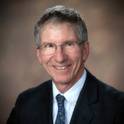×
About John C. Dernbach
John Dernbach is a nationally and internationally recognized authority on sustainable development, climate change, and environmental law.
Professor Dernbach writes and lectures widely on climate change, sustainable development, and environmental law. He has written more than 50 articles for law reviews and peer-reviewed journals, and has authored, coauthored, or contributed chapters to more than 20 books. Most recently, he and Professor Michael Gerrard edited Legal Pathways to Deep Decarbonization in the United States (Environmental Law Institute Press 2019), a comprehensive assessment and description of more than 1,000 legal tools that could be used to reduce U.S. greenhouse gas emissions by at least 80% by 2050. He is also the editor or principal author of three comprehensive assessments of U.S. sustainability efforts that made recommendations for future action. They are Acting as if Tomorrow Matters: Accelerating the Transition to Sustainability (2012), Agenda for a Sustainable America (2009) and Stumbling Toward Sustainability (2002). In addition, he was a member of the National Research Council Committee that, in Sustainability and the U.S. Environmental Protection Agency (2011), made recommendations on how to institutionalize sustainability at EPA.
He has contributed to three landmark judicial decisions. Professor Dernbach’s scholarship and advocacy helped persuade the Pennsylvania Supreme Court in two major decisions (Robinson Township v. Commonwealth (2013); Pennsylvania Environmental Defense Foundation v. Commonwealth (2017) to reinvigorate the Environmental Rights Amendment to the state constitution. Until those decisions, the Amendment, which recognizes the basic rights of Pennsylvania citizens to a clean environment, had been nearly dormant for more than four decades. Dernbach was also one of four lawyers to co-author an amicus brief to the U.S. Supreme Court in Massachusetts v. Environmental Protection Agency on behalf of 18 prominent climate scientists, including two Nobel laureates. In 2007, the Supreme Court held that that EPA’s denial of a petition to regulate greenhouse gas emissions from motor vehicles was arbitrary and capricious. The majority opinion reflects the climate change science described in the brief, not the view of the science expressed by EPA in denying the petition. This case provides the foundation for much federal regulation of greenhouse gases.
In two stints totaling near 15 years, he worked at the Pennsylvania Department of Environmental Resources (now the Department of Environmental Protection). During this time, he had a major role in drafting comprehensive and nationally recognized reforms to Pennsylvania’s mining and waste programs. He was the primary drafter of Pennsylvania’s recycling legislation, under which more than two million tons of recyclable material are diverted from landfills each year. He was also a primary drafter of comprehensive regulations for municipal waste and residual waste (industrial waste that is not legally hazardous). More recently, he directed the department’s policy office, where he was responsible for developing and coordinating policy and regulatory initiatives for the department and for advising the secretary on land use, energy, watershed protection, performance-based decision making, and other issues.
Professor Dernbach is also the primary author of a classic legal writing text (A Practical Guide to Legal Writing and Legal Method) as well as a book to assist students with writing law school exams (Writing Essay Exams to Succeed in Law School (Not Just Survive).
Professor Dernbach's official retirement was at the end of the 2022-2023 academic year, and the university awarded him emeritus status at the law school in February 2023.
| Present | Commonwealth Professor of Environmental Law and Sustainability; Director, Environmental Law and Sustainability Center, Widener University Commonwealth Law School | |
|
|
||
Disciplines
Research Interests
Courses
- Climate Change
- Environmental Law
- International Environmental Law
- International Law
- Property
- Sustainability and the Law
Contact Information
717.541.1933
Email:
